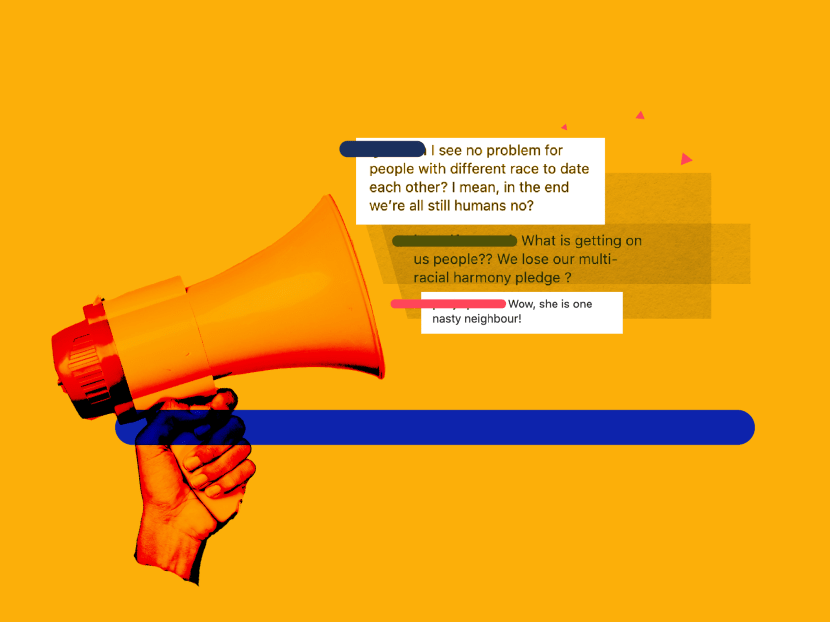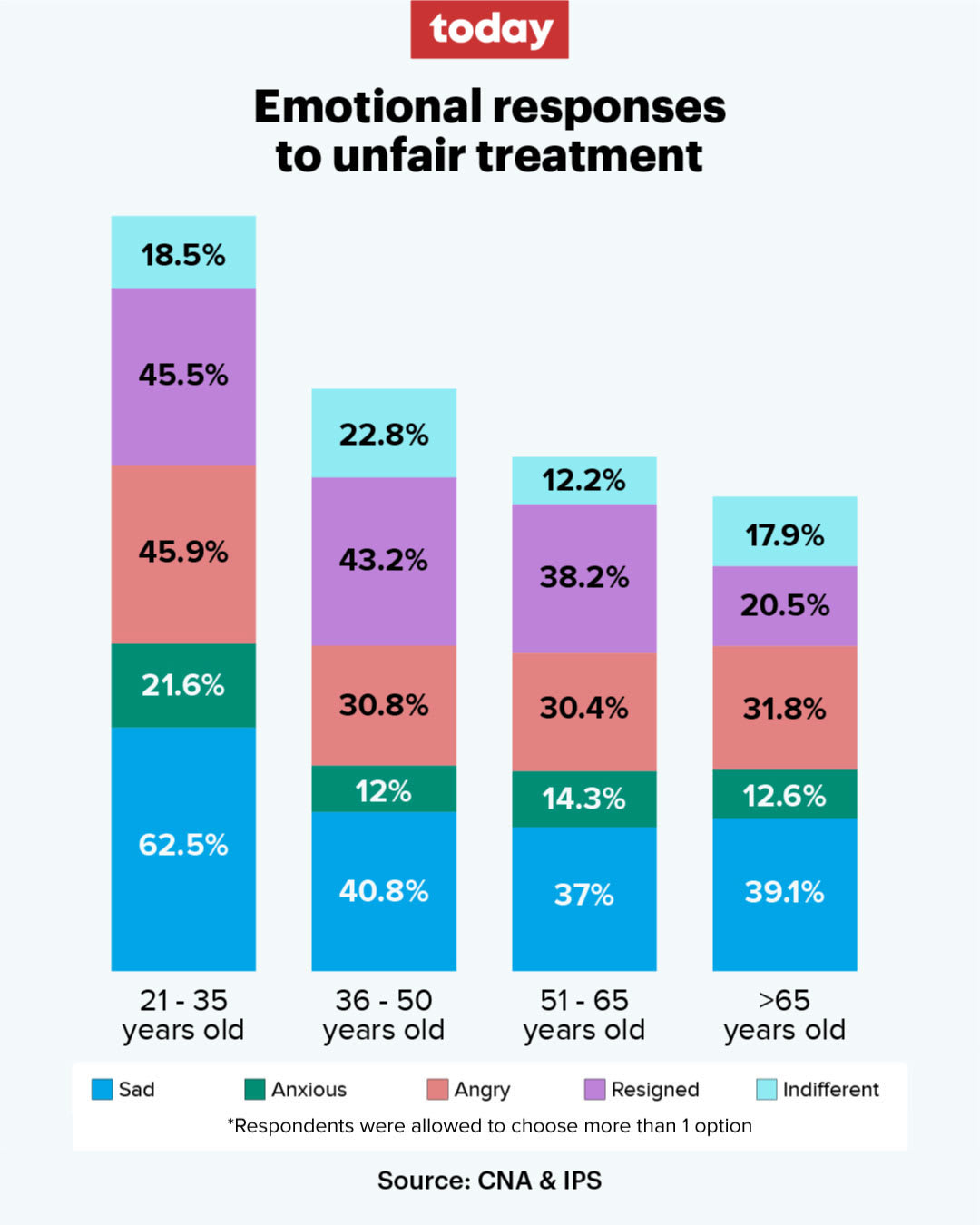Youths more likely to call out racism in public, saddened by discrimination: CNA-IPS survey
SINGAPORE — The youth in Singapore are more likely to call out racism in public and support such an action, a survey has found. Young people also tend to feel sad in response to discrimination, compared to older folk who are most likely to feel resigned.

- A survey conducted by CNA and IPS formed the basis of a two-part documentary that was aired on CNA on March 31 and April 1
- It re-examined issues related to race and religion that were studied in the last edition of the survey published in 2016
- The survey found that young people in Singapore are more likely to call out racism in public and support such an action
- They also tend to feel sad in response to discrimination, compared to older folk who are most likely to feel resigned
SINGAPORE — The youth in Singapore are more likely to call out racism in public and support such an action, a survey has found. Young people also tend to feel sad in response to discrimination, compared to older folk who are most likely to feel resigned.
The CNA-IPS Survey on Race Relations was conducted by CNA and the Institute of Policy Studies (IPS), and formed the basis of a two-part documentary that was aired on CNA on Thursday (March 31) and Friday.
It re-examined issues related to race and religion that were studied in the previous edition published in 2016.
Data was collected from 2,007 Singapore residents from November 2021 to January 2022, and “the sample was quite similar to the national resident population in terms of age, gender and citizenship status”, stated the IPS report.
The study found that people are unlikely to call out racism by any means, stating that less than half of all respondents agreed that people should directly criticise people who commit a racist act or write a post calling out racist incidents they observed or experienced.
The top reasons for not speaking up about racism are that the respondents feel they cannot be certain of the context behind the behaviour they witnessed, with 67.3 per cent feeling this way, and that it is a matter between the two parties, with 50.9 per cent feeling this way.
But the study found that young people are more likely to support directly calling out racism, compared to older folk.
Among those aged 21 to 35, 44.7 per cent of Chinese, 61.3 per cent of Malays and 65.6 per cent of Indians said that they would directly criticise people who have made a racist comment or carried out a racist act.
On the other hand, among those above 65 years old, only 10.7 per cent of Chinese, 12.2 per cent of Malays and 12.5 per cent of Indians shared the same sentiment.

RESPONSE TO DISCRIMINATION
The study found differences in the way respondents of different age groups reacted when they experienced unfair treatment.
For young respondents aged 21 to 35, the most common emotional response to discrimination was sadness, with 62.5 per cent feeling this way.
This was followed by anger, with 45.9 per cent claiming to feel this way.
On the other hand, older respondents would feel resigned, with 43.2 per cent of those aged 36 to 50 and 38.2 per cent of those aged 51 to 65 feeling this way.
Older people from the three major races are generally less likely to be looking forward to more public dialogue about race, the study found.
Among those above 65 years old surveyed, 71.7 per cent of Chinese, 80.5 per cent of Malays and 56.3 per cent of Indians said that they were “tired of talking about issues of race and racism”.
Malays above 65 years old were the least likely to want more public dialogue about race and less than a fifth, or 19.5 per cent, felt this way.
In comparison, the youngest respondents of each major race had “similar levels of earnestness” about public dialogue regarding race.
Among those aged 21 to 35, 51.2 per cent of Chinese, 51.6 per cent of Malays and 51.6 per cent of Indians said that they looked forward to more public dialogue about race in Singapore.
Young respondents were also the most supportive of carrying out public discussions on racism, with 75 per cent of Malays, 71 per cent of Indians and 49.1 per cent of Chinese feeling this way.











